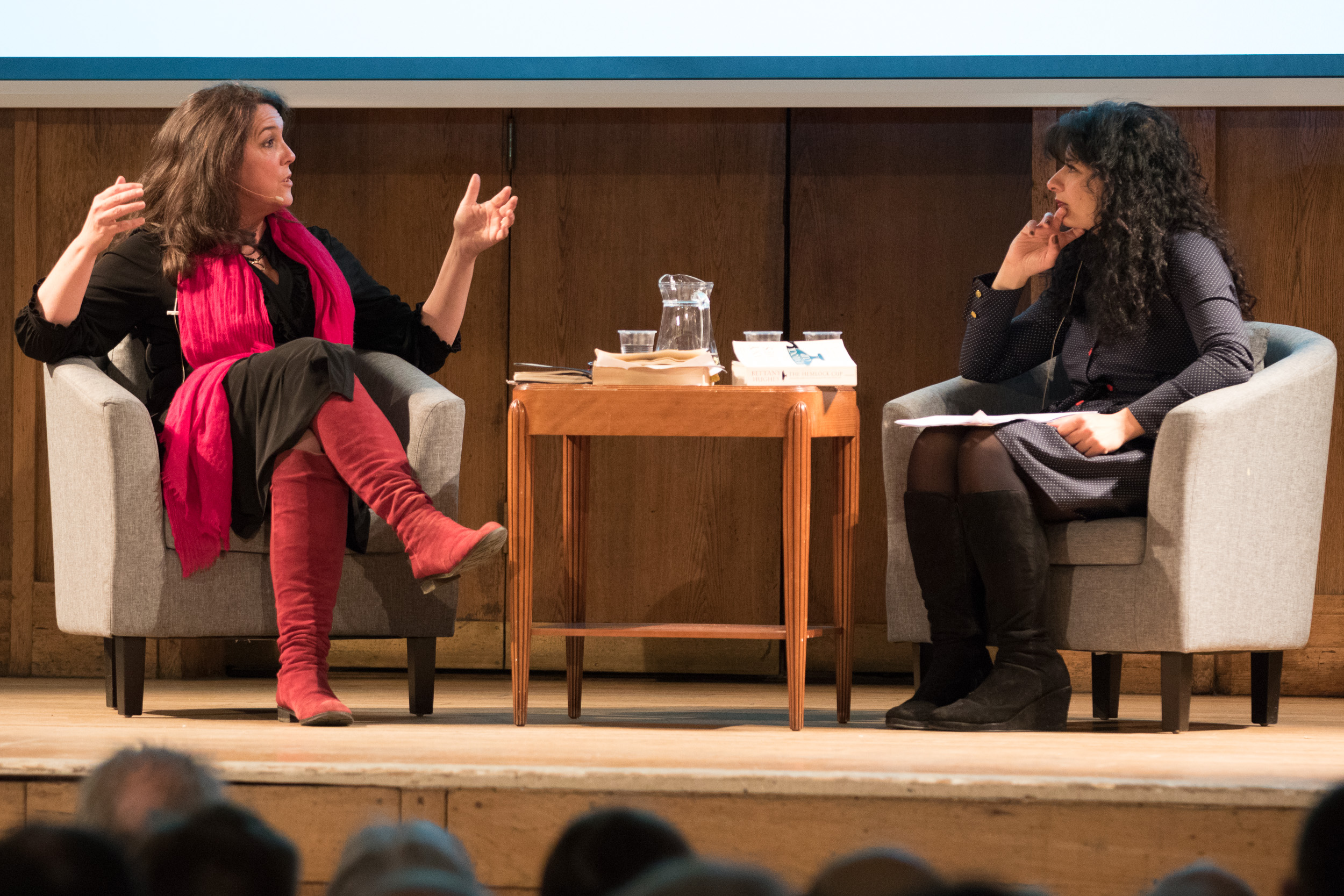
Historian Bettany Hughes spoke to British Humanist Association (BHA) President Shappi Khorsandi before a packed hall in Conway Hall in London last night, for an intimate exploration of the lives and minds of three great philosophers from the ancient world: Socrates, Confucius, and the Buddha. The event was the latest entry in the BHA’s prestigious Voltaire Lecture series, which each year explores a philosophical topic or human activity with particular reference or relevance to Humanism.
Bettany explained that what set Confucius, Socrates, and Buddha apart from philosophers before them and many in generations to come was their startlingly humanistic philosophies. Confucius and Socrates, for instance, are famous for their articulations of the ‘Golden Rule’, and they both eschewed their societies’ focus on ritual and devotion in favour of flexible, personal codes of ethics which stressed personal responsibility, compassion, and simple human kindness above all else. Meanwhile, the Buddha’s innovation was to take existing religious ideas of karma and democratise them. For Buddhists, this had the immediate benefit of lifting restrictions on interactions with those of different ‘castes’, and replaced concern with pleasing the gods with a greater emphasis on reciprocal human kindness.
As it went on, Bettany’s Voltaire Lecture explored the extraordinary conditions in the sixth and fifth centuries BCE which saw the flourishing of three of history’s most influential thinkers in such far apart lands as Greece, China, and India. She remarked on the war-torn and war-ravaged conditions in which all three of these thinkers matured, and speculated that this in turn could have forged their radical, pacifist philosophies. On a more macro level, she also noted the impact of farming technology on human consciousness in the period. Liberated from the constant grind of living purely for subsistence, humans could at last devote time and energy to explorations of the abstract. Economic innovations too, as represented by coin money, and roads and walls built for war, also helped to create the conditions for bustling cities and with city life came new perspectives on what it meant to be human and part of a broader human family.
Though all three were infamous in their lifetimes, Bettany reflected that Confucius, the Buddha, and Socrates never inscribed a single written word, and that despite common themes in their philosophies, it’s not known if the three figures had ever encountered one another’s works. Together, however, they represented a turning point in the human story, and opened the door to new forms of self-reflection: ones that are in principle concerned not with outside forces dictating our lives to us, but with humanity’s potential to better understand, and improve, its own conditions.
Notes
The British Humanist Association is the national charity working on behalf of non-religious people who seek to live ethical and fulfilling lives on the basis of reason and humanity. It promotes a secular state and equal treatment in law and policy of everyone, regardless of religion or belief.
The Voltaire Lectures Fund was established by the legacy of Theodore Besterman, biographer of Voltaire, for lectures on ‘any aspect of scientific or philosophical thought or human activity as affected by or with particular reference to humanism.’ The British Humanist Association now oversees the fund. Previous Voltaire lecturers have included: Professor Sir David King, Professor Anthony Grayling, Professor Steven Pinker, Professor Brian Cox, Professor Richard Dawkins, Baroness Wootton, Professor Robert Hinde, Kenan Malik, Natalie Haynes, Bonya Ahmed, Lord Taverne, and Sir Ludovic Kennedy. It is always chaired by the President of the BHA.
